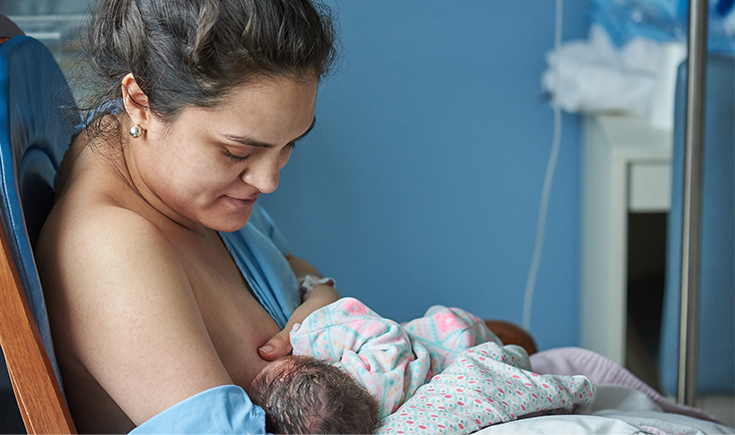

If you’re struggling with breastfeeding, or you’re unable to, or perhaps you feel it’s just not for you…you’re definitely not alone. Every mother finds it challenging in different ways, particularly in the early days and weeks. No one gives birth immediately knowing how to breastfeed, along with the knowledge to overcome every feeding issue from latching problems, tongue ties, blocked ducts, growth spurts, cluster feeding, teething, illness, and everything else that comes with having a baby.
Think of it this way: what other skills do you have that you were just expected to know how to do, and do perfectly from the start? Walking is natural and instinctive, but you didn’t just stand up one day as a toddler and start walking without ever falling over. There is no doubt that breastfeeding is instinctual. Put your newborn to your chest after giving birth, and they will root for your nipple. But that doesn’t mean it’s easy. You can adopt this mindset instead:
‘Breastfeeding is natural…but it’s (damn!) hard right now, and I’m still learning’
Like learning any new skill, it takes practice, patience, and gradual progress to understand what works and what doesn’t. Be gentle with yourself, celebrate the smallest breastfeeding wins, and remember that you are both learning together. For some reason, we beat ourselves up and feel like everyone else is finding it easy, which sets us up to feel like we’re failing our baby when we struggle.
You’ll have good days and bad days, but with the right support and information, you’ll hopefully gain confidence as you master and enjoy this amazingly rewarding new skill. It’s the mums who get the vital support that continue to breastfeed for as long as they want.
How do I get access to breastfeeding information and support?
1. Find your support network
Depending on your local lockdown restrictions, if you’re unable or would prefer not to meet with other mums, find your virtual tribe.
- Join the Australian Breastfeeding Association. The ABA has local support groups, plus virtual and online get-togethers. A local group is looked after by trained, volunteer breastfeeding counsellors or educators. You’ll find other mums going through exactly what you’re going through, and some facing other challenges. You’ll soon discover that you’re making progress when you can offer support to another mum who has the same concerns you did when you first joined.
- Join breastfeeding Facebook support groups, such as our Newbornbaby Breastfeeding Mumma’s group to ask questions, share your experiences, and offer your own tips in a confidential and judgement-free setting. Alternatively, we can post your question for you (anonymously if you prefer) on our page.
2. Find your local lactation consultant
Support from other parents, friends, and family can be wonderful, but there are times when you need a professional to help you recognise what is causing the issue. A lactation consultant will support you emotionally as well as pick up any breastfeeding problems.
- Read more here about how an LC can help. To find one, ask your:
- Maternal and child health nurse
- Australian Breastfeeding Association
- Australian Lactation Consultants of Australia and New Zealand






















